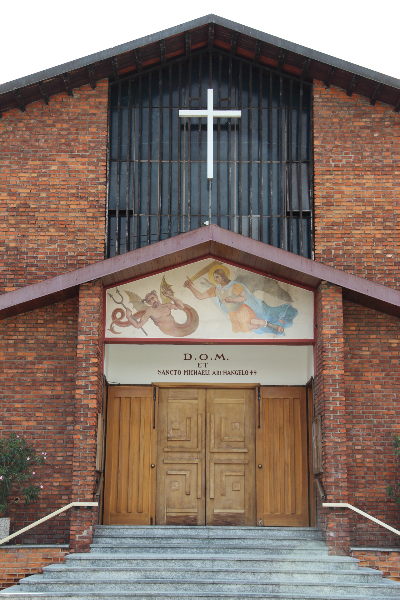Information and features. News release issued: 12 2019 february
Dating apps and internet sites could quickly utilize algorithms that are computing ‘think’ like people to identify fake pages built to con victims away from a lot of money.
Scientists from over the UK, including specialists through the University of Bristol Cyber protection Group, are suffering from brand brand new algorithms that may comprehend what fake dating pages appear to be then use this knowledge when they scan pages submitted to online online dating services.
The algorithms – designed included in a wide-ranging task aimed at fighting online fraudulence – automatically consider suspicious indications unintentionally included by fraudsters when you look at the demographic information, the images as well as the self-descriptions that comprise pages, and achieve a standard summary regarding the likelihood of every individual profile being fake.
With Valentine’s Day quickly approaching, the news headlines why these synthetic cleverness (AI) abilities have actually the possibility to simply help thwart so-called ‘rom-con’ scams will be really thank you for visiting the thousands of people whom utilize online dating sites services in britain and worldwide.
In these frauds, fraudsters target users of dating internet sites and apps, ‘groom’ them then require presents of cash or loans that may never be came back. Data collected because of the town of London Police Economic Crime Directorate, show that in 2017, over 3000 Britons lost a total of ?41million in such incidents, with a loss that is average of.
“With the increasing price of cybercrime, it is necessary that individuals know how crooks engage with victims on the internet and whether smart data analysis and AI practices can assist realize the habits and strategies they deploy, ” said Bristol’s Professor Awais Rashid, whom labored on the task with associates Dr Claudia Peersman and Dr Matthew Edwards.
“Romance frauds result in not just significant monetary losings for the victims but additionally psychological upheaval and anxiety. Our research shows that fraudulent relationship pages have identifying features which can be immediately detected having a degree that is high of. This offers the possibility of early and fast detection and removal of such profiles since the first step in defrauding a potential victim is the fraudulent profile.
“Of course, you should be mindful that such automated methods aren’t 100% accurate so that they complement as opposed to change current mechanisms depending on peoples detection – providing those taking care of detecting such fraudulent pages a unique device within their combat relationship scams. ”
When tested, the algorithms produced a rather low false-positive price (how many genuine pages mistakenly flagged up as fake) of around 1%. The goal is currently to advance improve the method and allow it to begin being adopted by online dating services inside the next few years, assisting them to stop profiles being posted by scammers.
The job in the textual along with other computer traits of online dating sites messages and profiles formed just one part of a general research effort that has additionally included UCL, King’s university London, Cardiff University and lovers global and has now targeted at boosting efforts to identify and give a wide berth to mass fraudulence that exploits online stations. Other areas of the effort have actually, for instance, centered on better knowledge of the therapy of men and women almost certainly to become perform victims of online scams.
Professor Tom Sorell of this University of Warwick included: “Online dating fraudulence is an extremely typical, frequently unreported criminal activity that triggers huge distress and embarrassment for victims in addition to monetary loss. Making use of AI ways to help expose activity that is suspicious be a game-changer which makes detection and avoidance faster, easier and much more effective, making certain individuals may use internet dating sites with even more self- confidence in future. ”
The study had been funded by the Engineering and Physical Sciences Research Council (EPSRC) additionally the Economic and Social analysis Council (ESRC).
More info
The project that is two-and-a-half-year and Preventing Mass-Marketing Fraud received around ?0.84million in EPSRC help.
Engineering and Physical Sciences analysis Council (EPSRC) is component of British Research and Innovation, a non-departmental general public human anatomy funded by a grant-in-aid through the British government. EPSRC could be the funding that is main for engineering and real sciences research in the united kingdom. By buying research and training that is postgraduate we have been building the data and abilities base necessary to address the systematic and technical challenges dealing with the nation. Our profile covers a huge variety of areas from healthcare technologies to structural engineering, manufacturing to mathematics, higher level materials to chemistry. The investigation we investment has impact across all sectors. It gives a platform for future UK prosperity by causing a healthy, connected, resilient, effective country.
Economic and Social analysis Council (ESRC) is a component of British Research and Innovation, a non-departmental public human anatomy funded by a grant-in-aid through the British government. ESRC may be the UK’s largest funder of research regarding the social and financial concerns dealing with us today. It supports the development and training for meetme the UK’s future social scientists and additionally funds major studies offering the infrastructure for research. ESRC-funded research notifies policymakers and professionals and tends to make companies, voluntary figures along with other organisations far better.

















